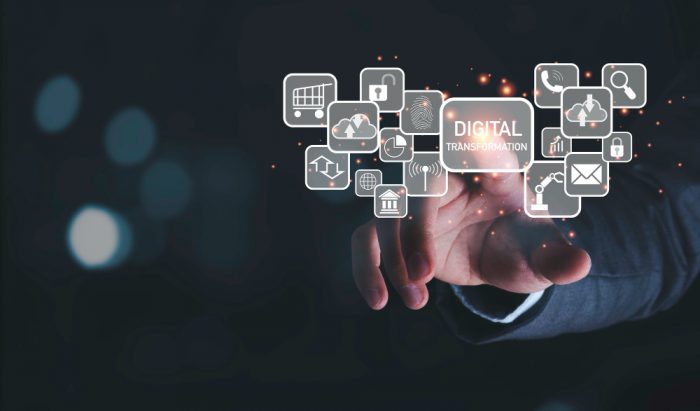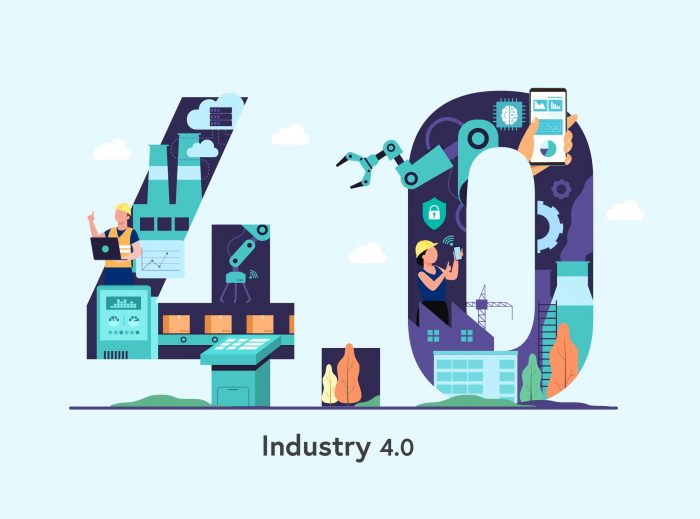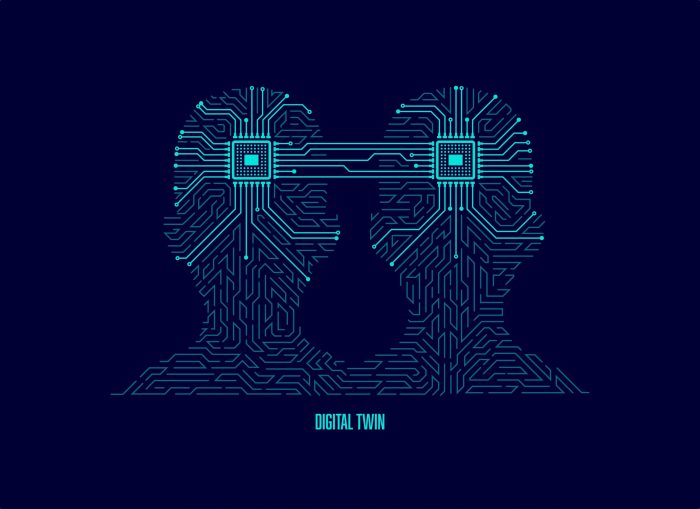Manufacturing & Automation in Industry 5.0
Audio : Listen to This Blog.
Most companies are still trying to implement the practices of Industry 4.0 (using Internet of Things, IoT), however, there are already discussions going on about the next industrial revolution: Industry 5.0.
Table of Contents
What is Industry 4.0?
It is a subset of the fourth industrial revolution. It encompasses automation in manufacturing set-up including concepts like Smart manufacturing and smart factory. As we speak, the technology is getting wider acceptance from industry stalwarts and finding its way through real-life applications. The connected automation technologies that form the backbone of Industry 4.0 are being widely and increasingly deployed.
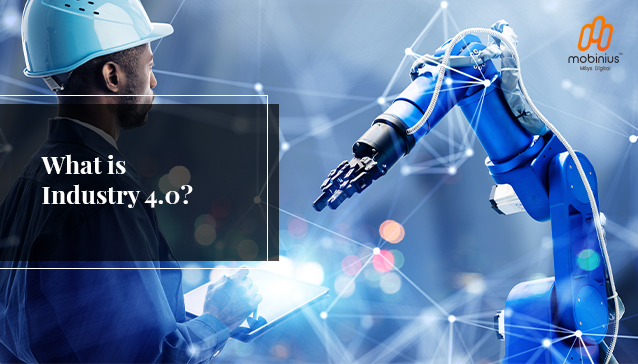
What is Industry 5.0?
Although Industry 4.0 is still scaling up its contribution in the manufacturing setups, its vision of complete automation with interconnected devices is clearly a preference. Industry 5.0 is the future. It will be focused on human and robot collaboration for better efficiency and productivity. Mass customization and personalization is the key aspect of fifth Industrial revolution. It will integrate the automated and efficient concepts of the Internet of Things (IoT) and big data with human skill sets.
We are still amid Industry 4.0, where ‘smart’ manufacturing is paving the path through the integration of the IoT, AI, ML, etc.
Trends in Industry 5.0
This can be best understood through Artificial Intelligence (AI) & Machine Learning (ML).
Artificial Intelligence is also known as AI is the intelligence demonstrated by machines. It uses complex algorithms and methods to build machines capable of making their own decisions without human interference.
Read More : “Artificial Intelligence|Machine Learning and Their Smart Applications“
To transform your business as the technology revolution continues you should know below automation trends:
1.Automated accounting
The entire accounting process with the help of the digital revolution (software & digital assistants) will intelligently categorize expenses and automatically follow up on invoices. This will free up valuable time for focusing on growing your business.
2.Computerized customer service
Everyone has called a large company and dealt with a computer-generated operator, this same technology is now available at a reasonable price point for small and medium businesses, allowing you to process basic requests without human intervention.
3.AI-enabled Processes
Much like customer service, other processes in departments like Sales, Marketing, Operations, Supply Chain can be automated using Artificial Intelligence tools.
These trends can be best understood and implemented in your business through Subject Matter Experts (SMEs), Consultants, and AI development companies.
Manufacturing in Industry 5.0
Smart manufacturing allows factory managers to automatically collect and analyze data to make better-informed decisions and optimize production. The data from sensors and machines are communicated to the Cloud by IoT connectivity solutions deployed at the factory level. In such a setup, one of the key benefits is predictive maintenance.
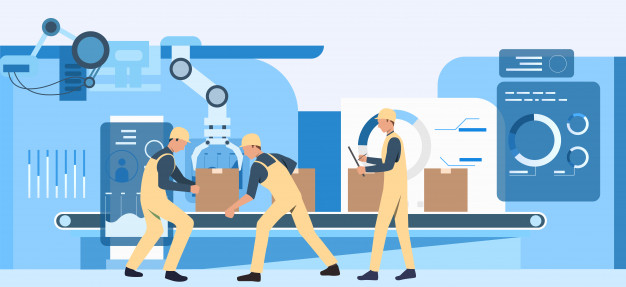
Predictive Maintenance: It is a technique that uses data analysis tools and techniques to detect anomalies in operation and possible defects in equipment and processes so you can fix them before they result in failure. This helps in reducing downtime due to broken parts or unnecessary maintenance costs.
Read More : “How Machine Learning Development is transforming our lives?“
Additionally, automation benefits can be seen through the supply chain as below:
- Track location of goods in real-time
- Track condition of goods in real-time
- Capture and analyze data in real-time
- Warehouse/Inventory Management: Ensure the right products in the right place at the right time
All of this is possible in Industry 4.0. The easiest way to explain 5.0 is that it takes the automated and efficient concepts discussed above and injects them with a traditional, personalized human touch.
Benefits of industry 5.0
1.Customization
The connected Industry 4.0 technologies, including robots, are enabling manufacturers to move from mass production to mass personalization.
2.Upskilling
Like every industrial revolution, to survive through the fifth Industry revolution, humans will have to upskill themselves to collaborate with robots and work on the latest technologies. Overall, this is better for mankind as it equips humans with not only technical know-how but survival skills as well.
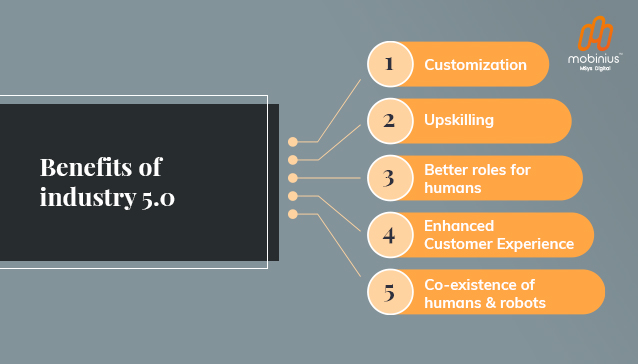
3.Better roles for humans
The concept of Cobot implies:
- Using robots for repetitive and labor-intensive work
- Using humans for customization and thinking radically out of the box
3.Enhanced Customer Experience
As the focus on customization will lead to a better customer experience since the demand of customers can be certainly met.
4.Co-existence of humans and robots
With the concept of Cobots, the focus is on benefitting from the existence of both worlds (humans and robots). Robots are considered to be more precise than humans and better at completing tasks that require precision and humans are known for their cognitive ability and critical thinking. What better than the combination of these two in manufacturing set-ups for better efficiency and enhanced productivity.
Conclusion
We are still amid Industry 4.0, where ‘smart’ manufacturing is paving the path through the integration of the IoT, AI, ML, etc. The fundamental behind the fourth industrial revolution is that ‘connected machines’ add value to the entire manufacturing chain. It lays emphasis on bringing smart technology to the forefront of manufacturing whereas Industry 5.0 focuses on collaboration between humans and smart systems – Cobots.
For more information on how we can help you leverage your technologies, feel free to reach out to us here.
Contact us
Industry 5.0 is seeing light through the day and according to some tech visionaries, it will increase human involvement and bring back the human touch to manufacturing. Human intelligence will be working in tandem with cognitive computing ensuring value addition in the whole manufacturing process.
It is not a question of whether a manufacturer can reap the benefits of Industry 5.0 practices, but how they can best leverage new technologies to gain optimum results from human and machine interactions. The role of IoT development and AI development company is very crucial. Focus on leveraging Artificial Intelligence solutions through a partner who has expertise in automating operations and overcoming complex business challenges.
Read More : “How will Digital Transformation Impact the Future of SMEs?“
Below are some of the services provided by development companies helpful for manufacturing and automation in Industry 5.0:
- Custom AI software development
- Bot development
- AI as a service
- Knowledge-based systems
- AI-enabled chatbots
- Decision management
- Advanced business analytics, predictive analytics
FAQ's
On an IoT platform, a digital twin is a virtual representation of a physical asset, a machine, or a device. It digitally represents the data, processes, operation states, and lifecycle of the asset.
Industry 5.0 is the future. It will be focused on human and robot collaboration for better efficiency and productivity. Mass customization and personalization is the key aspect of fifth Industrial revolution.
The time to learn about the fifth Industrial revolution is now. More and more manufacturers across the globe are now exploring its benefits and upgrading their Smart and interconnected factories. Exploring the details from now will be a huge benefit and ensure the first-mover advantage.
Python is the leader. Not only it is a widely used language but has wide applications ranging across various requirement types.

